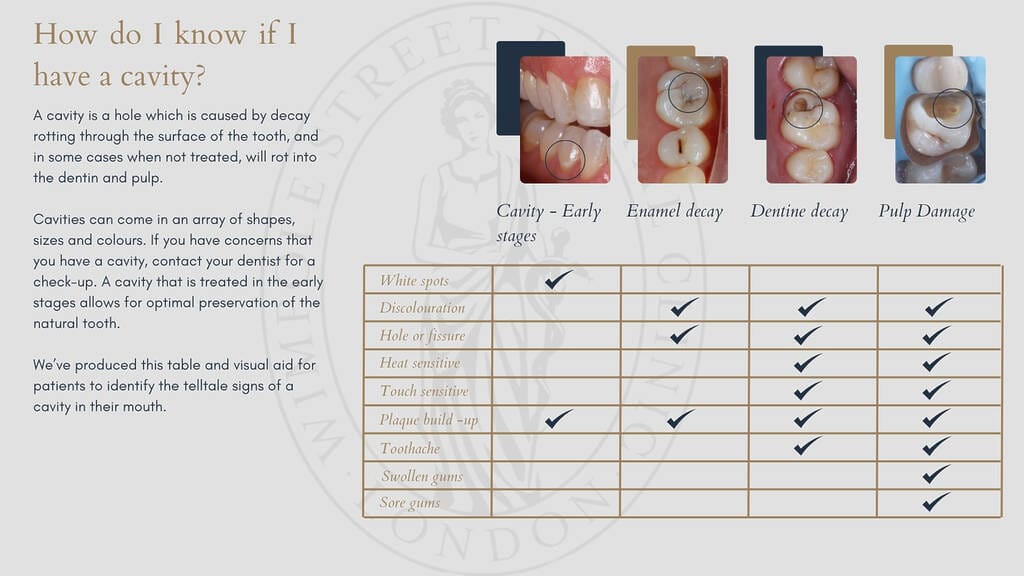How do I know if I have a cavity?
Noticing a cavity early can make a big difference in keeping your teeth healthy and your smile bright. Cavities form when bacteria in your mouth produce acid, which eats away at your tooth enamel. If left untreated, cavities can cause further tooth damage, pain, and even infection. Here are some common signs that may help you identify a cavity early on.

1. Sensitivity to hot, cold, or sweet foods
One of the most frequent symptoms of a cavity is sensitivity to hot or cold foods and drinks. You may also notice discomfort when eating something sweet. This occurs because the cavity allows substances to reach the inner layers of the tooth, where nerves are more exposed. If you feel sharp pain or a tingling sensation when consuming certain foods, it could indicate a cavity.
2. Visible holes or pits
In some cases, you may be able to see a small hole or pit on the surface of your tooth. This can be a clear sign that decay has started to wear down the enamel. Using a mirror, look for any dark or unusually coloured spots on your teeth. If you spot anything unusual, it’s best to have it checked by a dentist.
3. Toothache or pain
A lingering toothache can be a strong indicator of a cavity. The pain may come and go, or it might worsen when you bite down on food. Persistent pain should never be ignored, as it often points to more advanced decay that might require treatment.
4. Bad breath or unpleasant taste
Cavities can harbour bacteria that produce odours, leading to bad breath. If you have a cavity, you may also notice an unpleasant taste in your mouth. Regular brushing can help, but if the issue persists, it’s worth consulting with a dental professional.
5. Feeling rough or sharp edges
If a part of your tooth feels sharp or rough, it might be a sign that decay has created a cavity. These rough edges can occur when a part of the tooth surface has broken down.
If you suspect a cavity, it’s important to book an appointment with your dentist. Early detection and treatment can help prevent further damage and keep your teeth as healthy as possible.
4o
Wimpole St Dental Clinic has strict sourcing guidelines and relies on peer-reviewed studies, academic research institutions, and medical associations. We avoid using tertiary references. You can learn more about how we ensure our content is accurate and current by reading our editorial policy.

